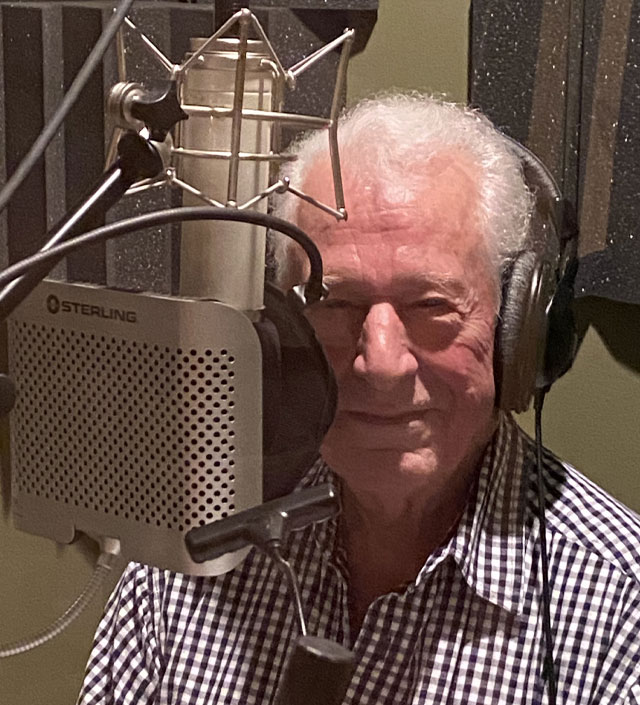Scott Stratton is one of the lucky ones: He’s been able to merge his profession of helping people achieve financial security with his passion for music — Stratton is a CFP, CFA and a master of the trombone.
His professional-musician clients, whom he says constitute 40% of his book, are also lucky to have him. This has been especially true during the COVID-19 pandemic.
In 2020, within the space of six weeks, some musician clients went from full-time paying gigs to zero income and no emergency fund, says Stratton, who runs Good Life Wealth Management LLC and is based in Little Rock, Ark.
For freelance musicians, “things can get ugly pretty fast,” he said. “Thankfully, unemployment benefits were extended to 1099 employees, and they learned about PPP loans (Paycheck Protection Loans) and EI (Economic Injury Disaster) loans.’’
Pandemic aside, some of Stratton’s musician clients over age 50 have to be reminded that they will not be working in perpetuity. Although there is no mandatory retirement age for musicians, performance quality is likely to decline with age and some may be asked to resign.
However, there are famous exceptions who performed professionally much longer than most. One example: The great trombonist Curtis Fuller (who was not a client of Stratton), a bedrock of the 1950s bebop movement, died May 8 at 88, but performed into his 70s.
“Most of those musicians say they won’t ever retire, it’s their passion, not a job … As a result, retirement planning is not appealing to them; it’s like you’re telling them they will be obsolete or no longer needed.”
“Most of those musicians say they won’t ever retire, it’s their passion, not a job,” said Stratton. “They don’t think of themselves the same way as someone who works in an office or a factory. They imagine they will play their whole life. As a result, retirement planning is not appealing to them; it’s like you’re telling them they will be obsolete or no longer needed.”
From Music Professor to Financial Planner
Stratton’s own road to combining work and play began at Oberlin College in Ohio, where he studied trombone, and then progressed to graduate work at the prestigious Eastman School of Music in his hometown of Rochester, N.Y. By the time he was 25, Stratton had earned his Master’s degree, a Performer’s Certificate and Eastman’s Doctor of Musical Arts degree.
“I take a great deal of pride in helping musicians. I can relate to what they are doing and where they have been. I know what it was like when you were in middle school and practicing, and what life is like today, with cancellations that came with COVID,’’ he said from his home in Little Rock.
Stratton, 48, spent about 20 years in Texas. He was an adjunct professor of music at a couple of colleges, including Texas Christian University, before becoming a financial advisor in 2004. He was director of financial planning for the now-closed Stratford Consulting, whose AUM he helped increase to $375 million, and a financial advisor for GS Wealth Management, both in Dallas.
What prompted him to switch from teaching music to a financial planning career? He found teaching music offered very low pay, no benefits, no job security, and “I felt burned out from putting in so much effort.”
He had been trading stocks on the side and was making more income from that than from teaching music. Plus he had always been interested in finance and took economic courses, which he enjoyed, as electives during his undergraduate years.
Switching careers “was an obvious choice, although a difficult decision,” said Stratton. “It hasn’t been an easy road, but I’ve enjoyed the variety of puzzles financial planning presents.”
He also sees some parallels between his career paths.
“As an academic, I enjoyed research and learning for myself, but also the human element of educating others and making an impact on their life. And in that regard, I always wanted to be a financial advisor who approached his work as a teacher rather than as a salesperson.”
In addition, “I have always been curious about how and why things work, so I’m drawn to work that involves breaking down complex problems and finding solutions,” he said.
Stratton founded Good Life Wealth Management in 2014. Five years ago, he established a subset of his firm called Finance for Musicians.
Finding an Audience
Many of his clients who are professional musicians are his friends, colleagues and people he attended college with.
“After I became a financial planner, at rehearsals they would inevitably ask questions at breaks and tell me that they have some friends who wanted my help. It became an accidental niche; I wasn’t planning to work with professional musicians!
“But a lot of the musicians were not getting good advice because people who are not in the [music] profession don’t understand it enough … they don’t know about the musicians’ pension plan through the union, for instance. For me, it was a relatively easy niche, because I speak their language and I’m a member of the union.
“Yesterday, I was talking to trombonist up in Boston. I was reviewing his tax return and there were a bunch of things, such as deductions, that he missed. I told him it’s really important that he know this,’’ Stratton said. For example, musicians need to think about deducting concert clothes and how to apply mileage costs for tax purposes.
Musicians who are freelancers and have multiple gigs under multiple employers have incomes that fluctuate from year to year and even month to month, and that has been especially true during COVID restrictions, said Stratton.
“They have to set up savings on their own because they don’t have the kind of benefits you have when you work for a company, and they don’t have health insurance or 401(k)s, so you have to sort all of this out.’’
Because musicians lost so much income during the pandemic, paying taxes was less of an issue. However, there were people who did not have an emergency plan of three to six months of living expenses. “When you are self employed with a fluctuating income, it’s really important to have that emergency fund,” Stratton noted.
Although many young musicians aren’t saving enough for retirement, good news is in the offing for the union member musicians who have traditionally worked for multiple employers, he said.
“The musicians’ pension plan was in decline for a number of years and it went into critical decline status, so the union applied to the Treasury to cut its benefits, or it would have risked insolvency. Now, the new Butch Lewis Act is bailing out the multiple employee pension plan, and it looks like the musicians pension plan will get part of the billion dollars from the Treasury Department,’’ Stratton said.
The Butch Lewis Emergency Pension Plan Relief Act of 2021, part of the $1.9 trillion COVID stimulus package, will stave off insolvency among about 100 multi-employer pension plans that were on the brink of running out of money. Lewis was a union official and pension activist from Ohio.
The musicians’ union pension plan has 50,000 participants, Stratton said, including himself.
Favorite Gigs
Ask Stratton about thrills, and he’ll tell you the one about performing with his idol, the peerless, perennial jazz magazine poll-winning trombonist J.J. Johnson (1924-2001).
“If I had to choose one great trombonist who influenced my playing, it would be J.J. Johnson, and I got to play a concert with him,’’ Stratton said.
“I am a classical musician, and I play in an orchestra, but his sound is so beautiful and effortless, as is his creativity as an improviser. I really want to sound like him. He is the consummate artist and master.’’
He has also performed with the orchestra founded by Christopher Riddle, a son of the late, legendary Nelson Riddle, himself a trombonist with the Tommy Dorsey Band, and an Emmy and Oscar-winning composer and arranger for Frank Sinatra, Ella Fitzgerald, Nat King Cole, Judy Garland and Linda Ronstadt.
Stratton, who recently moved to Little Rock, said his financial planning business is much smaller than in his Texas days because he has changed his focus.
“I put less focus now on AUM, because as a fiduciary, I want to tell clients to leave their money in their 401(k). When I started 17 years ago, my main focus was to do IRA rollovers, moving money from a 401(k) to an IRA, that I would manage,’’ he said.
“And I want to have a work/life balance, so I don’t work eight hours a day at a desk. I might work intensively for four hours, then take an hour off to hike or practice the trombone, then work another hour. I do usually have a six-day work schedule, but my goal is to not be a martyr to an 80-hour-work-week.’’
Stratton keeps weekends free for hikes near the rural home that he shares with his girlfriend — whose job as regional manager of a European construction company brought them to Little Rock — and for music gigs.
As a freelance musician, he has been principal trombonist of the Garland, Las Colinas and Arlington symphonies in Dallas since 2001, and he performs frequently with his quintet, The Perennial Brass. That requires making the four hour-plus commute to Dallas, for now.
“At this point, most of the gigs are back in Texas, so there is some commuting for those gigs in Dallas, but I’m getting established in Little Rock. I’m playing a lot of church gigs, and my main focus is on the brass quintet. We play all styles of music: When we’ve played nursing homes, we try to play music that the audience will be familiar with, so that would be jazz standards and big band music.’’
The COVID lockdown and restrictions have imposed several changes on Stratton’s life, including cancelled performances and a different approach to counseling clients.
“By now, I’ve been working remotely for a year. In that year, I was meeting clients remotely, even my clients who were only two miles away. My business is ‘location independent.’ As long as I have my laptop, the Internet and a phone so that clients can reach me, I can work anywhere,’’ he said.
Even previous to COVID, Stratton said most of his work with musicians has been done remotely, given that many are based in Texas and have peripatetic lives.
Starving Artists and Math Whizzes
Stratton laughed when he was asked if musicians compare favorably with non-musician clients as far as their acumen for figures and finances.
“It does run the gamut! You have the starving artist mentality and they want to stay that way, but then you have musicians who are very good at financial planning. Some are very talented in math and very interested in it, so they tend to click very well with financial planning.’’
Stratton said his website for musicians gets lots of visits “because I am the only one writing about this. But the hard part is to get a lot of traction with the really great prospects.
“My idea has been to put out good content and keep the site fresh and relevant and address the major concerns of musicians,” he said. “Most of them really need a comprehensive plan and they have to start from the ground up.”
In a four-decade career in journalism, Eleanor O’Sullivan has reviewed many books on best practices for financial advisors, has written for Financial Advisor and the USA Today network, and was movie critic for the Asbury Park Press.







